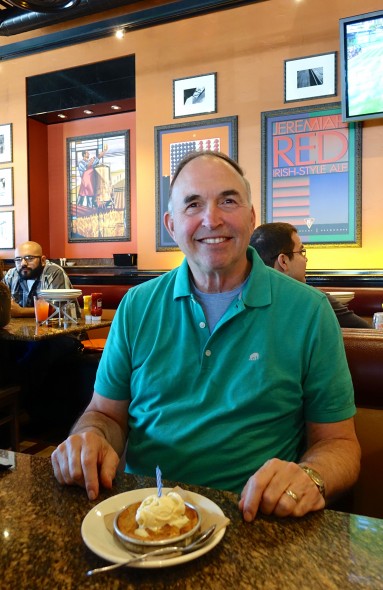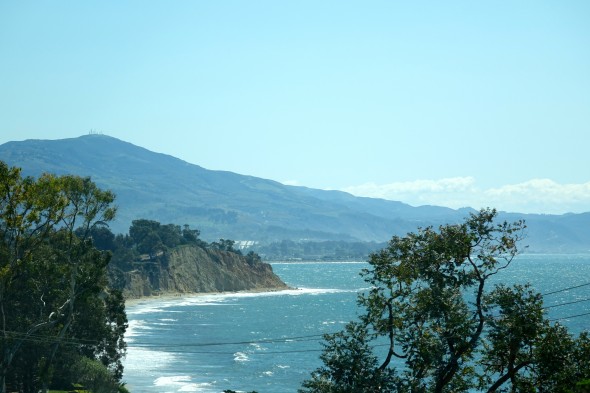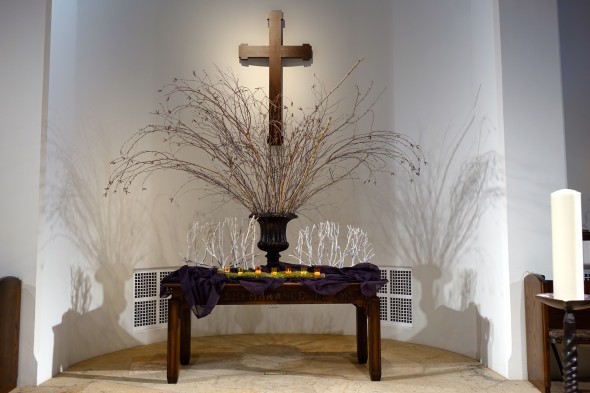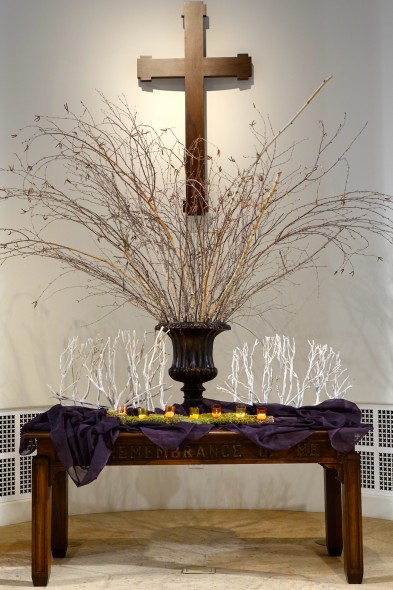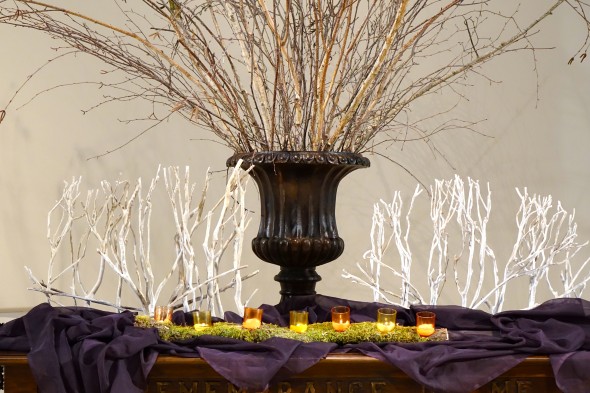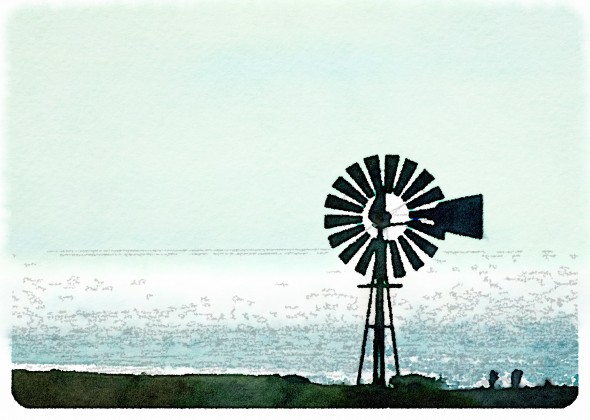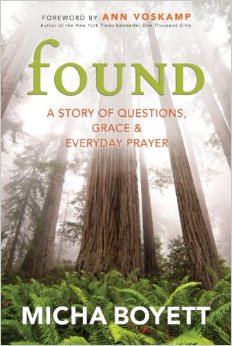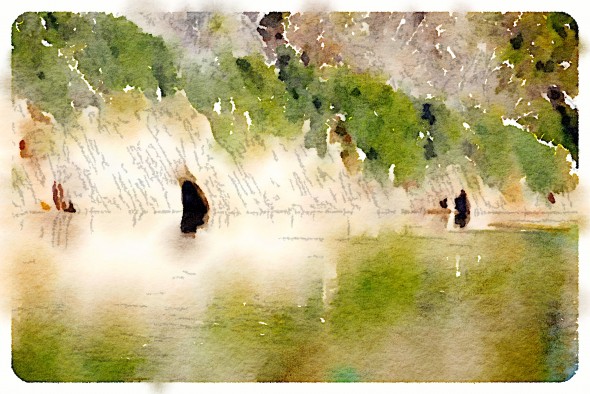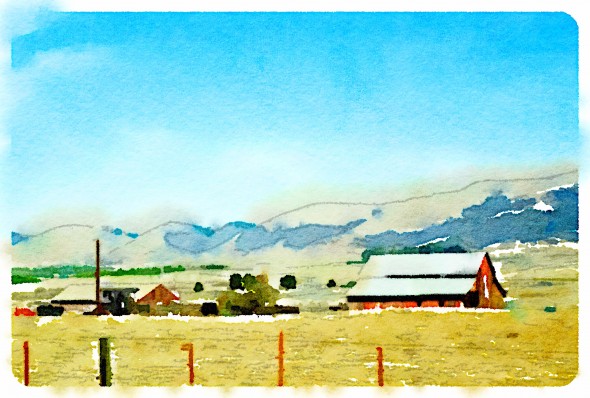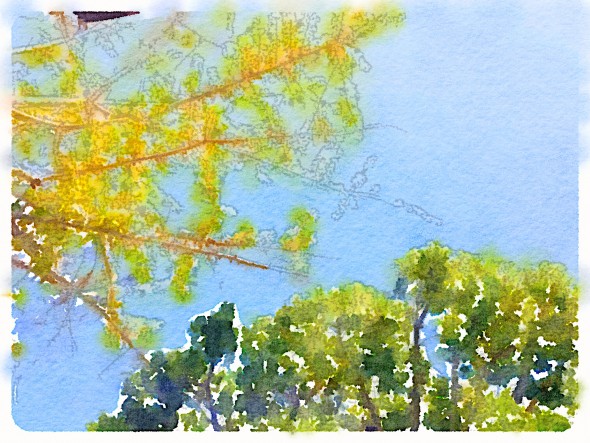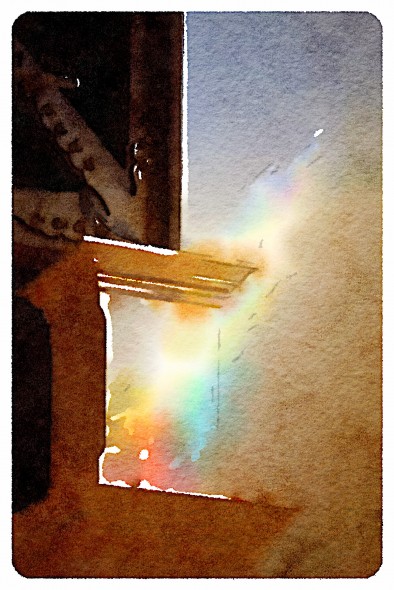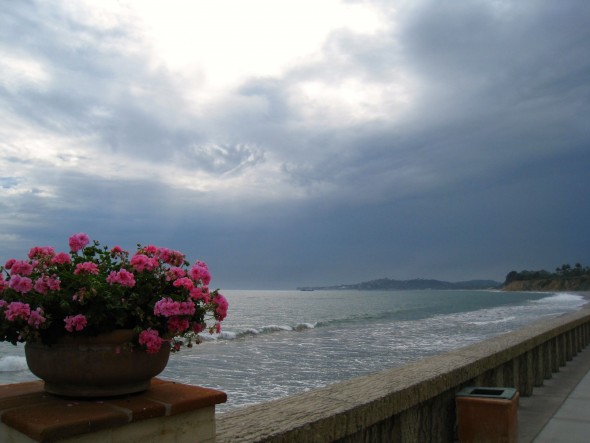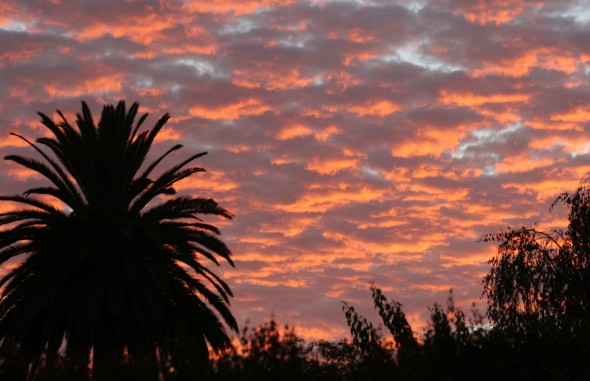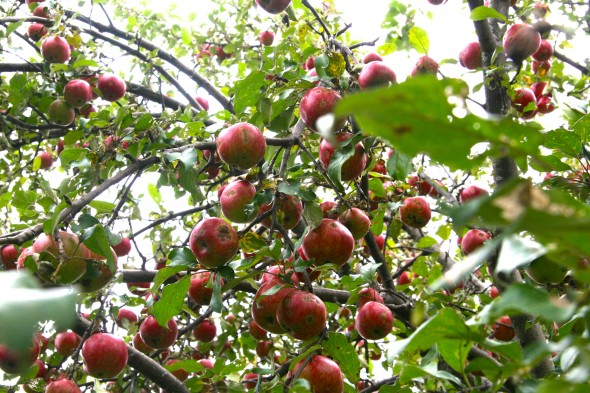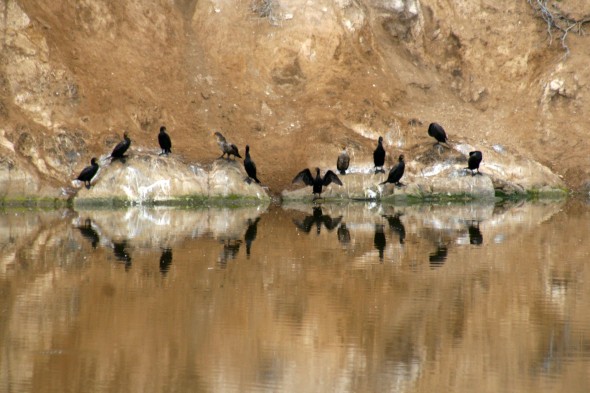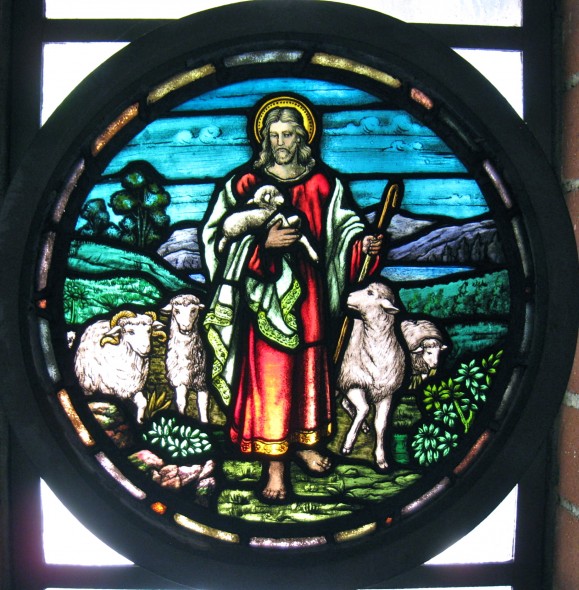It’s been quiet around here of late. I’ve written around the blogosphere at several different places in the last few weeks, but not terribly often here, in my space, just writing for me, and whoever might stop by to see whatever words I’ve gathered.
We had a quiet weekend, celebrating Dick’s birthday in several small gatherings. On his actual day, just he and I went out for lunch and to a matinee. On Saturday, our son and his family surprised us with a drop-in, take-out dinner from our favorite local Mexican hang-out. And on Sunday, after church, we met our eldest daughter and her husband and youngest son at BJ’s in Ventura. We love s t r e t c h i n g birthdays out as long as we can — and three days was just about right.
My guy was hungry for ribs, and BJs never disappoints. And to finish things off very well indeed, he was served his own individual Pazookie, complete with candle! Do you know what a Pazookie is? Just one of the divinest desserts ever invented, that’s what. A freshly baked cookie (several choices – he picked peanut butter), fresh from the oven, topped with a scoop of Haagen Daaz vanilla. Heaven in a small aluminum pan, that’s what.
The drive south took us past this lovely spot, looking down on Summerland Beach. The day was breezy and the water a little bit wild — always fun to see. And somehow, the celebratory mood of day and meal and family seemed fitting and right after a profoundly moving worship experience earlier in the day.
This was our fabulous worship band-of-the-week jamming after the service was over. Our Director of Worship Arts, Bob Gross, planned a perfect combination of songs for the theme of the day, including a masterful arrangement (his own) of, “Lord, I’m Amazed by You” with The Doxology. The entire opening sequence brought me to tears more than once — filled as it was with what we do best: contemporary and traditional music, both poured through the inventive mind of Mr. Gross. We sang that old favorite, “Holy, Holy, Holy” this way – verse 1, totally a cappella (and we can SING the harmony in our community!), verse 2, full band with quiet percussion, verse 3, up a key, adding the most moving slow roar of the drums I’ve ever experienced, and verse 4, straight ahead and gorgeous. Oh, my.
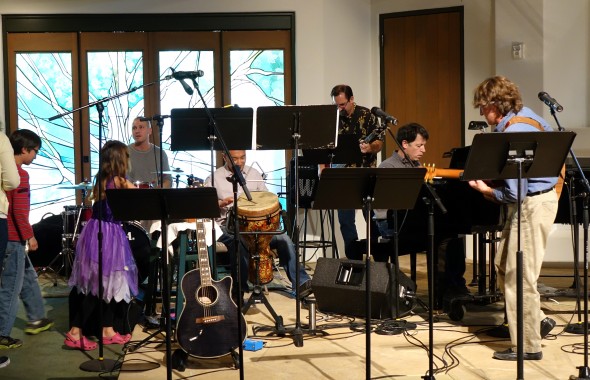 As always, the music, the prayer, the readings from Old Testament and New coordinated well with the preaching text of the morning, which this week was taken from the last eleven verses of John 16.
As always, the music, the prayer, the readings from Old Testament and New coordinated well with the preaching text of the morning, which this week was taken from the last eleven verses of John 16.
God spoke powerfully through Pastor Jon about what it means when we pray in the name of Jesus. Here are a few highlights from that passage:
“My Father will give you whatever you ask in my name . . . I am not saying that I will ask the Father on your behalf. No, the Father himself loves you because you have loved me and have believed that I came from God . . . A time is coming and in fact has come when you will be scattered, each to your own home. You will leave me all alone. Yet I am not alone, for my Father is with me . . . I have told you these things, so that in me you may have peace. In this world you will have trouble. But take heart! I have overcome the world.”
These few verses contain some mighty huge ideas, ones that linger and permeate. Ideas like these:
The name of Jesus is strong, redemptive, life-changing. It is not magical.
There will be suffering in this life — which should come as a surprise to precisely no one. But because of Jesus, because we are given the inestimable gift of praying in his name, we are never alone, no matter what.
Praying is not about words alone. In fact it is more often about silence . . . or it is experienced in action. We pray in Jesus’ name whenever we offer comfort/aid/solace/provision for another.
We pray with our bodies, not just in them. WE are the continuation of the Incarnation as we allow the Spirit of our Lord to work through us, as we live out what it means to be the Body of Christ.
Praying in the name of Jesus touches on one of the foundational truths of the Christian faith — we serve a Triune God, Father, Son, Spirit — One in Three, Three in One.
We do not ask Jesus to pray for us, so as to somehow buffer the space between us and God the Father. Too much of the church has painted a picture of a scary God, one that Jesus saves us from, a God that cannot be approached by the likes of us. But Jesus says clearly and beautifully, “. . . I am not saying that I will ask the Father on your behalf. No, the Father himself loves you . . . “
“Take heart,” Jesus says. Immediately after predicting that all his friends will desert him in his hour of need, that they themselves will have their share of trouble. “Take heart,” he says. TAKE HEART? Yes. And not only that, but because of that name, that powerful name, they — and we — will have peace, the kind of peace that makes room for this truth: the One in whose name we pray has overcome the world.
I carried these pieces of grace with me as we drove down the coast, as we laughed and ate a good lunch with our daughter’s family, as we came back home and prepared for the week ahead. Turns out there’s a lot, a LOT, in a Name. I am grateful
